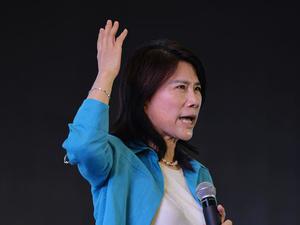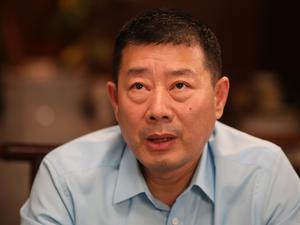来源:四大新鲜事儿

01
毕马威澳大利亚裁员200人
据Australia Financial Review2024年6月14日报道,作为8,000万美元成本削减计划的一部分,毕马威澳大利亚将对其咨询业务进行全面改革,将重点放在技术相关咨询和软件安装业务。受此影响,毕马威澳大利亚将裁员约200人。

此次裁员约占毕马威约4000名咨询员工的5%。毕马威澳大利亚去年裁员300人。
裁员不会影响“高级顾问”以下职位的人员。另约有50名咨询人员的工作将被重新安排。
咨询部门年收入近10亿美元,约占毕马威预估收入25亿美元的40%。该部门将扩大工作范围,如安装新的计算机系统,并帮助客户适应升级后的软件。
此类工作包括公司的专家安装和配置来自微软、Salesforce、SAP、ServiceNow和Oracle的软件系统,以及帮助客户调整流程以适应新的工作方式的“变更管理”顾问。
咨询主管Paul Howes不愿直接对竞争对手发表评论,但这一转变是对咨询巨头埃森哲商业模式的认可。埃森哲长期以来一直将其业务分为技术相关咨询和外包,并采用全球化的方式提供服务。
德勤也强调其技术相关咨询部门的重要性,而不是多面手的咨询工作。
Howes表示,此次变革的目标是彻底改变毕马威在当地的咨询业务产生收入的方式。这将意味着,该公司约60%的咨询收入来自与技术相关的咨询,高于目前的40%;大约30%来自一般的“鉴证和咨询”服务;剩下的10%将来自客户持续将业务外包给公司。
毕马威澳大利亚预测,未来几年技术咨询业务和管理服务业务将快速增长,而一般咨询业务最多将保持现有水平。
Howes透露,该公司最近赢得了两个重大项目——一个是与一家全球金融服务公司合作,另一个是与一家全球酒店服务公司合作。在这两项业务中,毕马威的咨询顾问都被要求安装一个重要的新软件系统,并帮助企业有效地转换到使用这些系统。
02
安永大洋洲裁员148人
据accountantsdaily报道,安永大洋洲(EY Oceania)近日通知148名员工,他们将被裁员,其中大部分是咨询和金融服务员工。

安永大洋洲首席执行官David Larocca表示,这一“艰难的决定”是由于“需求持续低迷”,特别是咨询和金融服务领域。
去年11月,该公司以类似的市场压力为由裁员232人。当时,受影响最大的是金融服务团队。
此次裁员的传言已经流传了一段时间,一位发言人此前向《会计时报》透露,在与员工沟通之前,公司不会对员工变动发表评论。
澳大利亚最大的几家咨询公司仍未摆脱此前普华永道税务泄密事件的影响,这严重影响了它们与政府实体签订合同的能力。
比顿研究与咨询公司执行主席George Beaton4月17日在《澳大利亚金融评论》上分享的一项调查显示:四大咨询公司在政府客户中的地位受到了严重打击。57%的政府客户受访者表示,他们将来不会考虑联系四大会计师事务所。
去年,这一比例低至43%。Beaton表示,这些政府客户目前正在考虑下面这四家会计师事务所——BDO、Grant Thornton、Pitcher Partners和RSM。
更严重的是,研究表明私营部门的客户也对四大会计师事务所失去了信心。
Beaton的数据显示,去年年初,54%的较小客户表示,他们的主要顾问是四大会计师事务所中的一家。在不到一年的时间里,这一数字下降了一半以上,至26%。
原英文报道如下:
01
毕马威澳大利亚裁员200人
KPMG Australia will overhaul its consulting business to focus on tech-related advisory and software installation as part of an $80 million cost-cutting exercise that will include shedding about 200 jobs.
Consulting leader Paul Howes said the changes were being made in response to a “fundamental shift in that market” at a global level away from “legacy assessment and advice services”.
The cuts, which will be finalised by the end of next week, represent about 5 per cent of the firm’s roughly 4000 advisory staff and come after KPMG cut 300 staff across the firm last year and dozens this year.
The cuts will not affect anyone below the role of “senior consultant”. Another 50 or so affected consulting staff will be redeployed in the firm.
“I think the era of generalist management consulting being standalone is over, and that all consulting into the future will need to be tech-enabled,” Mr Howes told AFR Weekend, describing the year as a “bumpy” one for the firm.
The consulting division – which generates almost $1 billion, or about 40 per cent of KPMG’s estimated $2.5 billion revenue – will shift to doing more work installing new computer systems and helping clients adapt their operations to upgraded software.
This type of work involves the firm’s experts installing and configuring software systems from Microsoft, Salesforce, SAP, ServiceNow and Oracle, along with “change management” consultants helping clients adapt their processes to the new ways of working. Put another way, this is the classic type of system implementation work that turned Accenture into a global professional services powerhouse.
Tech consulting to rapidly grow
Mr Howes said the changes included “looking at org design, understanding working behaviours ... [and] organisational psychology in terms of the way in which you actually get different bits of quite a large sprawling company to talk to each other”.
He wouldn’t comment directly on competitors, but the shift is an endorsement of the business model of consulting giant Accenture, which has long split its powerhouse business between tech-related consulting and outsourcing and had a global approach to delivering its services.
Another big four consulting firm, Deloitte, has also emphasised its technology-related consulting division over generalist advisory work.
The restructure presents a major challenge for Mr Howes, a former Australian Workers Union official who has effectively become the second most powerful partner at KPMG after chief executive Andrew Yates.
He said the aim was to entirely change the way KPMG’s local consulting generates income. This would mean having about 60 per cent of the firm’s consulting revenue come from tech-related consulting, up from 40 per cent; about 30 per cent to come from general “assessment and advice” services, down from 60 per cent; and the remaining 10 per cent to come from clients outsourcing work to the firm on an ongoing basis.
The firm forecasts that tech consulting business and managed services business will be fast-growing in the years to come, while the general advice business will be flat at best.
COVID-19, remediation booms end
Driving the change has been the end of two “booms” that have fuelled growth in the consulting sector.
“During the past three to four years, a lot of consulting sector growth has come off the back of what you’d call a COVID boom, as organisations needed that extra capacity and that rapid digital transformation during the early stages of the pandemic. It’s also come off a remediation boom that, in Australia, was triggered principally off the back of the Hayne royal commission.”
The major consulting firms have also been hit by a pull-back in demand by the telco, consumer products and retailing sectors – in addition to the financial services sector – and lower demand from the public sector, caused by the furore around the PwC tax leaks scandal and as the Labor government looks to rebuild skills within the federal bureaucracy.
This has led to consultants heavily promoting their cost-cutting skills to clients. Partners at the big four consulting firms have also been told to expect their profit shares to be down this financial year, by double-digit percentage points in many cases.
Mr Howes said the firm had recently won two major projects – one with a global financial services company and the other with a global hospitality company – that exemplified the type of multi-year consulting work that he wants the firm carrying out.
In both cases, KPMG’s advisers are being called in to install a significant new software system and help the companies switch over effectively to using those systems.
02
安永大洋洲裁员148人
On Tuesday morning, EY Oceania informed 148 mostly consulting and financial services staff members they were being made redundant.
Oceania CEO David Larocca said the "difficult decision" was driven by a “continued downturn in demand” particularly across consulting and financial services.
In November last year, the firm cut 232 staff from its headcount, citing similar market pressures. Then, the lion’s share of the redundancies came from the firm’s financial services team.
In a statement released at the time of those redundancies last year, Larocca said he forecasted the reduced demand to “be felt for most, if not all, of this financial year.”
Rumours of the layoffs have been circulating for some time, and a spokesperson last week informed Accounting Times the firm would not comment on the workforce changes before they were communicated to its employees.
The nation’s largest consulting firms are still reeling from the PwC tax leaks scandal, substantially affecting their ability to contract with government entities.
George Beaton, executive chairman at Beaton Research and Consulting, today shared insights in The Australian Financial Review from a survey that reportedly found the standing of big four consulting firms to have taken a major hit among government clients.
In the 20-year history of the survey series, Beaton said this year saw the big four firms to have “fallen out of favour for the majority of government clients.”
Fifty-seven per cent of government client respondents said they would not consider contacting a big four firm in the future.
Last year, the figure was as low as 43 per cent. Those government clients, said Beaton, are now considering “next four” firms BDO, Grant Thornton, Pitcher Partners, and RSM.
Perhaps more troubling, research suggests private sector clients too have lost faith in big four firms.
According to Beaton, 54 per cent of smaller clients reported a big four firm as their primary adviser early last year. In under a year, this figure has more than halved to 26 per cent.
The layoffs are not limited to Australia. EY’s US business sacked 300 staff nationally in April last year and announced further cuts in December.
But neither are they limited to EY. In March, PwC Australia cut 366 staff, including up to 37 partners which CEO Kevin Burrowes said was part of a new, "long-term strategy" resulting from a "challenging and complex process."
Also in March, Deloitte Australia announced a major restructure with a “small number” of attendant redundancies while KPMG Australia did away with approximately 200 roles early last year.
In reference to Tuesday’s announcement, Larocca said the decision will “in no way impact our focus on building a safe and inclusive workplace for all.”
“We remain absolutely committed to delivering on all the recommendation of the Elizabeth Broderick & Co report, and to investing in our culture transformation.”

VIP课程推荐
APP专享直播
热门推荐
收起
24小时滚动播报最新的财经资讯和视频,更多粉丝福利扫描二维码关注(sinafinance)







